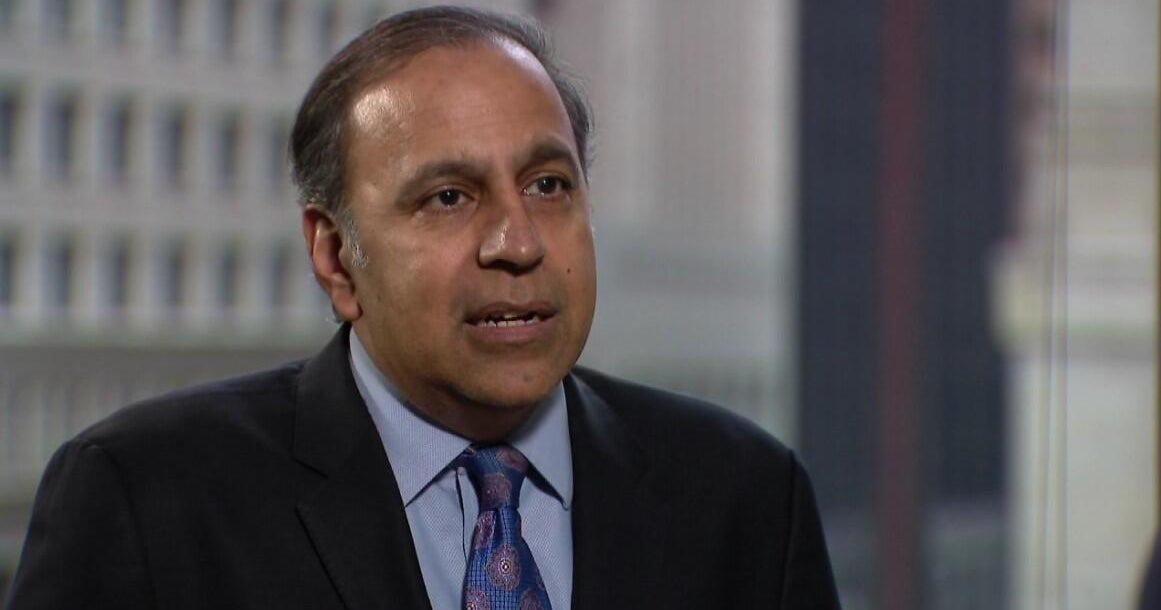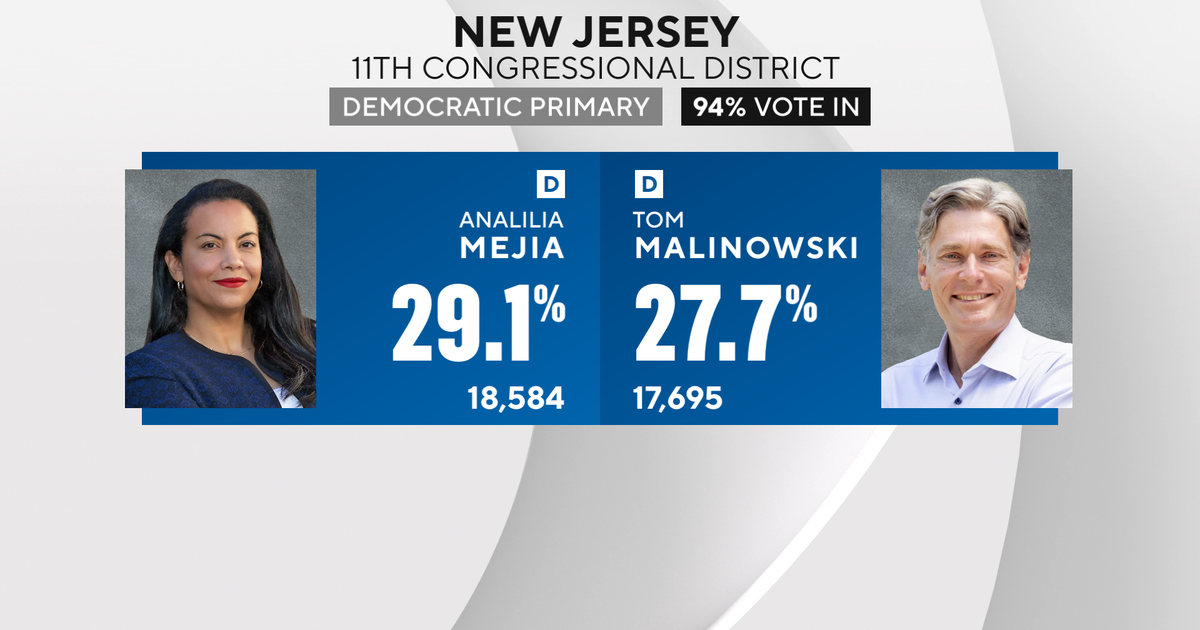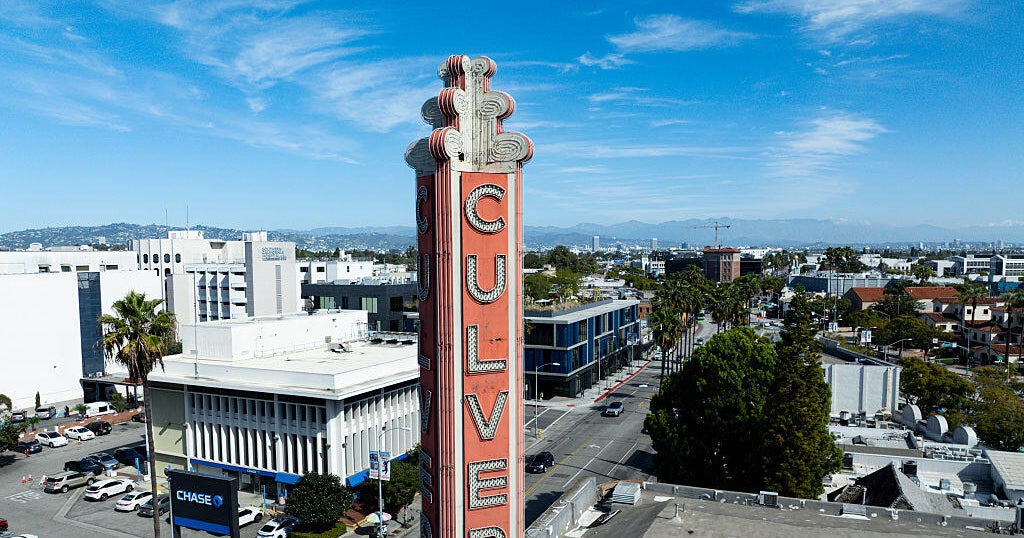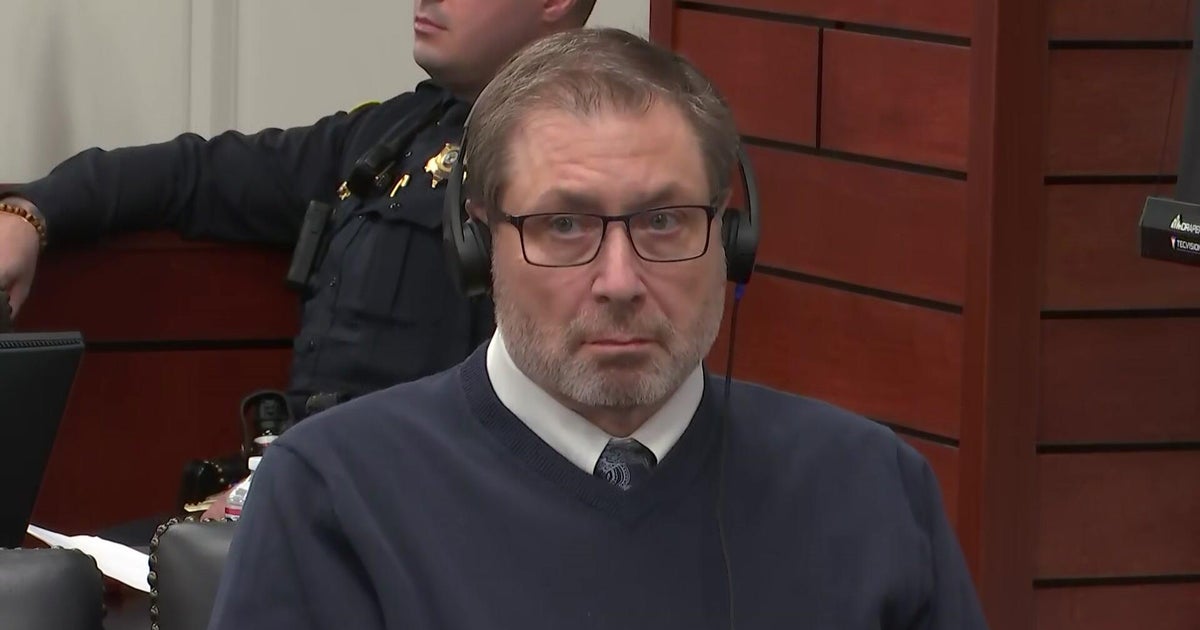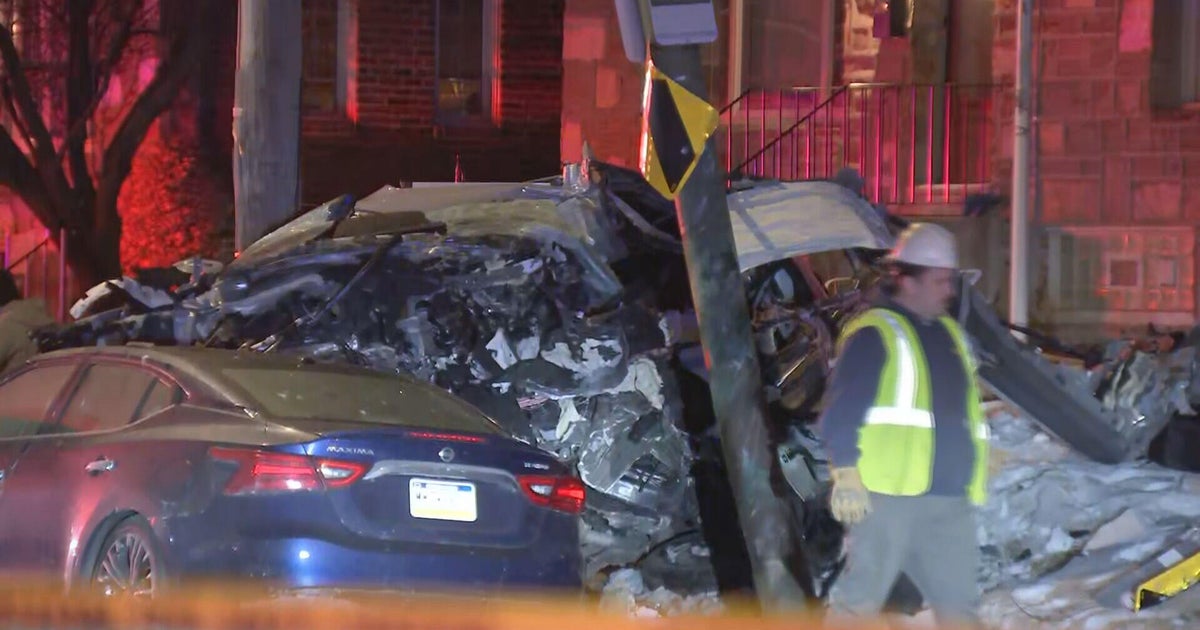Barbs and bickering at mayoral forum three weeks before election
CHICAGO (CBS) -- Bickering and invective were on display at another Chicago mayoral forum Tuesday evening, as eight of the nine candidates reiterated why they believe they are the best for the job and pointed out the flaws of their opponents.
WTTW-Channel 11 hosted the forum Tuesday night. Kam Buckner, Ja'Mal Green, Brandon Johnson, Sophia King, Mayor Lori Lightfoot, Roderick Sawyer, Paul Vallas, and Willie Wilson all participated. U.S. Rep. Jesus "Chuy" Garcia was attending President Joe Biden's State of the Union Address and was not present.
"Chicago Tonight" co-anchor Paris Schutz moderated the debate.
Many of the questions focused on crime. Schutz noted that the medical journal JAMA Network Open recently published a study reporting that men between the ages of 18 and 29 living in the 60624 ZIP code on the city's West Side have a greater chance of being shot and killed than U.S. soldiers in the Iraq and Afghanistan wars. He used that framework to ask the candidates what they would do to ensure and improve public safety.
Buckner noted that the city spends $2 billion in policing – with "a murder rate that's way too high and a clearance rate that's way too low," and called for resources on the ground. Vallas, a former Chicago Public Schools chief executive officer, called for a school-based solution involving opening schools on weekends and holidays to keep kids off the street.
Meanwhile, Johnson was asked about reports that he would cut the police budget. He replied that what he actually wants to do is "invest in people, because that's what the city of Chicago deserves," and said police officers are often called to the scenes of incidents where they are asked to go beyond what their jobs are supposed to be.
"The reason why we don't have enough police officers is because we're asking them to be social workers, therapists, marriage counselors," Johnson said.
King called for the expansion of a program for mental health first responders, while Green called for a "block club infrastructure program through the city of Chicago" in which people would take ownership of their own blocks.
With regard to the low clearance rate, Sawyer called for the development of a witness protection program.
"With police, we want to make sure we're keeping them laser-focused and the resources necessary, and I've implemented and ordinance to enhance the witness protection program because people are scared," Sawyer said.
He noted that often, people are afraid for their own safety to come forward to police with information about who committed a crime.
"People don't want to say something, and far too often, they're asked questions in front of the offenders on the street," Sawyer said.
The forum began to grow heated when Schutz asked Wilson about a comment he has made that police should be enabled to hunt suspects down "like rabbits." Schutz asked Wilson if he thought police should hunt down an unarmed teen fleeing from officers in such a fashion.
Wilson did not directly answer the question despite Schutz asking him repeatedly to do so – but noted as he has other times that he lost a son to gun violence and said parents are now scared of crime.
"If you commit a crime, you hurt somebody, you kill somebody, they should be hunted down like a rabbit," Wilson said. "That's what I said. That's what I meant."
Mayor Lightfoot was quick to fire back.
"What he just said is absolutely outrageous, because what he's saying is that because you have the pain of loss of a victim of gun violence – as unfortunately, way too many people in the city have – that we should turn our police department into a group of vigilantes to hunt down and kill people instead of abiding by the Constitution and giving them their day in court," the mayor said.
Meanwhile, Lightfoot also disputed that the statistic that the Chicago Police Department is only 5 percent in full compliance with its federal consent decree – which Buckner first brought up.
The consent decree, a series of mandated CPD reforms that a federal court is overseeing to make sure they are implemented, was first put into place in 2019.
The federal investigation was launched into Chicago policing after the killing of Laquan McDonald. A key finding was abusive policing occurring in communities of color and a lack of accountability.
Mayor Lightfoot said the last report from an independent monitor showed department is at almost 80 percent compliance with the decree overall, and said Chicago has moved faster than any other city in the same period of time. Schutz clarified that the 5 percent statistic was for full compliance with the report.
The difference between these statistics was not discussed further, as King interjected a criticism of Lightfoot for the firing of the official in charge of overseeing Chicago Police reforms. Last year, Robert Boik, the executive director of the Office of Constitutional Policing & Reform, was fired one day after writing a critical email to police Supt. David Brown.
King also raised the issue of an officer who was investigated for having ties to the Proud Boys and was not fired. Officer Robert Bakker was placed on a 120-day suspension after he was investigated for his links to the Proud Boys, which the FBI has labeled as an antisemitic white supremacy organization.
"I appreciate that all these folks want to throw bombs from the cheap seats. The fact of the matter is the facts are really clear," Mayor Lightfoot said. "We are in compliance. We are improving our compliance every single day."
Schutz further addressed the issue of Officer Bakker and how he was suspended, but not fired. Sawyer and Vallas were each quick to say he should have been – though Vallas noted that due process needed to be followed.
Lightfoot said the characterization of what happened in the Bakker case was not correct, and criticized Schutz's lines of questioning.
"A lot of your questions are laden with premises that just are belied by the facts," Mayor Lightfoot said.
The mayor said the information about Bakker's alleged ties to the Proud Boys came to the CPD from the FBI, but the FBI did not provide details on the statement from the officer. She said the CPD put together a "fulsome" investigation, but did not think they had enough evidence to fire Bakker.
"Of course we should not hire, we should not support, we should not retain any officer that is associated with any hate group," Lightfoot said.
When Wilson was asked the same question about the Bakker case, he said, "Everybody has to have their day in court."
"Except for the people you want to hunt down and kill like rabbits," Lightfoot said.
As Wilson went on speaking, Vallas was heard telling Lightfoot to let him finish, and Lightfoot replied, "Don't tell me to quiet down, Paul."
"I'm talking to Mr. Vallas, who's trying to treat me like I'm some child telling me to quiet down," Lightfoot said when Wilson complained about the interruption.
"Paris, this is exactly what the people of Chicago don't want – people up here bickering," King interjected. They want to hear our solutions to the problems. They want us to solve the safety issues, to have better schools. This is something we have to do. We have to stop all this nonsense."
Bringing businesses back downtown and in the neighborhoods was another key topic.
Buckner noted that chief executive officers around the city do not feel there is any real predictability, there are issues with safety, and they do not believe the mayor listens to them. He said he has a plan to grow the city's population.
Green called for stabilizing the city – and turning the Magnificent Mile into a "strip of experiences."
"We need to make sure the Mag Mile is place people want to come and travel again so that we can create a tax base," he said.
Green also accused Johnson of having a budget plan that would tax businesses out of town.
King said a cooperative approach was needed, or there would be consequences.
"We need to lead this city with collaboration, or companies, teachers, officers - everyone will continue to leave the city," she said.
But while Schutz noted the departure of Boeing, Caterpillar, and Citadel from Chicago, Lightfoot emphasized that new companies have also come in.
"About 400 new companies have either come to Chicago over the last two years or substantially expanded their footprint in the city," the mayor said. "Why are companies like Google saying, 'We're going to make 3,000 to 5,000 new jobs in downtown Chicago? Why is Kimberly Clark moving here – its headquarters. Why is Kellogg moving its headquarters here?"
Vallas was asked about the drop in Loop occupancy rates. He said public safety is a serious problem.
He said in the Central (1st) and Near North (18th) police districts – which together extend along the lakefront from Fullerton Avenue to 31st Street – there were 37 or 38 murders last year compared with five in 2019.
"Clearly, clearly, there's perception – or maybe it's reality – that downtown is unsafe," Vallas said.
He said huge property tax increases were also a problem, and some businesses have not recovered from the height of the COVID-19 pandemic.
The candidates were also asked about the projected Chicago Public Schools budget shortfall in 2025, and whether closing more schools is a viable option.
"What I would do is close those schools that have only got 250 people in them," Wilson said, "and I would take them - sell them or rehab them and put affordable houses in there - create economic empowerment within the community."
"When I ran the Chicago Public Schools - when they were near bankruptcy and lost 115,000 students over previous 15 years - we pushed the money down to the local school level," said Vallas. "All the schools became community schools - which meant they were open all the time - through the dinner hour, over the weekends, through the summer. We had close to 200,000 kids engaged.
The election is coming up in three weeks on Feb. 28.


